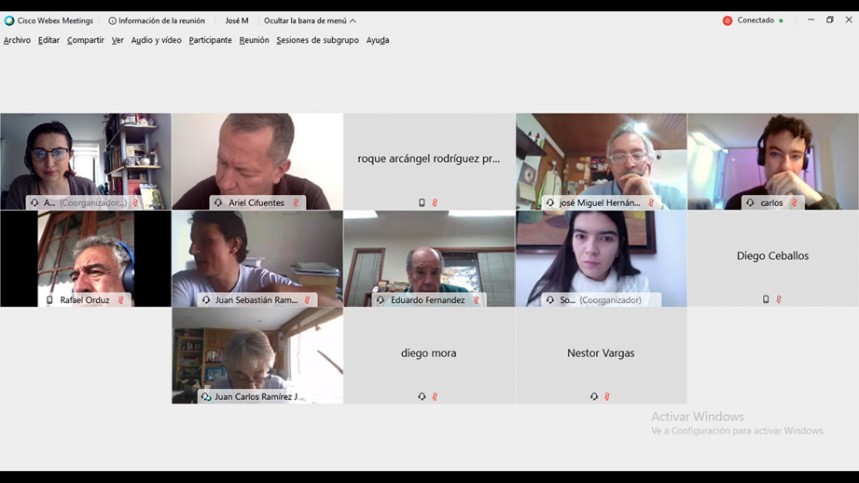ECLAC Opens Up Spaces for Reflection and Discussion around Rural-Urban Ties in Colombia
ECLAC’s Office in that country held eight virtual events to promote dialogue and reflections on peace, identity, cultural wealth and biodiversity in communities in the south of the department of Tolima.

During the second half of 2020, ECLAC’s Office in Bogotá carried out eight virtual gatherings for southern Tolima Department in Colombia, in the framework of the Territorial linkages for inclusive development in Colombia project. Over the course of these meetings – despite the physical distance – synergies were created with leaders of productive, community, cultural and educational projects from the four municipalities that make up the Territorial Approach Development Programs (PDET) in southern Tolima.
Throughout September and October, ECLAC sent out invitations widely to bring together the voices of people, organizations and regional entities at five virtual gatherings that addressed Territorial Linkages; regional communication and Information and Communications Technologies (ICTs); culture, identities and territorial development; ecotourism and peace; and experiences from southern Tolima in terms of linkages. In these spaces, participants spoke about the challenges that their projects face due to the health emergency, and they contemplated integrated actions for strengthening ties and encouraging territorial development.
In the wake of the reflections shared during the five virtual gatherings that took place in September and October, ECLAC’s Office in Bogotá, in November and December, developed three virtual workshops on regional communication with the aim of strengthening joint narratives on the territory’s pillars of identity. In groups, the attendees discussed the immense richness of ecotourism, coffee, culture and biodiversity-related initiatives in their territory and the potential that lies in telling those stories. Finally, the project’s team and the community designed a joint agenda for forging a space for strengthening in early 2021.
Despite the challenges posed by the COVID-19 emergency, significant progress has been made in the framework of this project. The virtual nature of recent gatherings highlighted obstacles to access and connectivity that reveal territorial inequalities, particularly for those who inhabit rural areas.
The project featured the voices of young people who decided to return to their places of origin to develop creative initiatives, women who banded together to fight against neglect and for equality, rural dwellers who have worked for peace in the countryside, and teachers who have created educational projects aimed at social transformation. All of these people helped forge a variety of ties and collective actions that plant the seed for building more solid and inclusive public policies with a territorial approach
Subregional headquarter(s) and office(s)
Type
Country(ies)
- Latin America and the Caribbean
Related link(s)
Contact
Public Information Unit
- prensa@cepal.org
- (56 2) 2210 2040